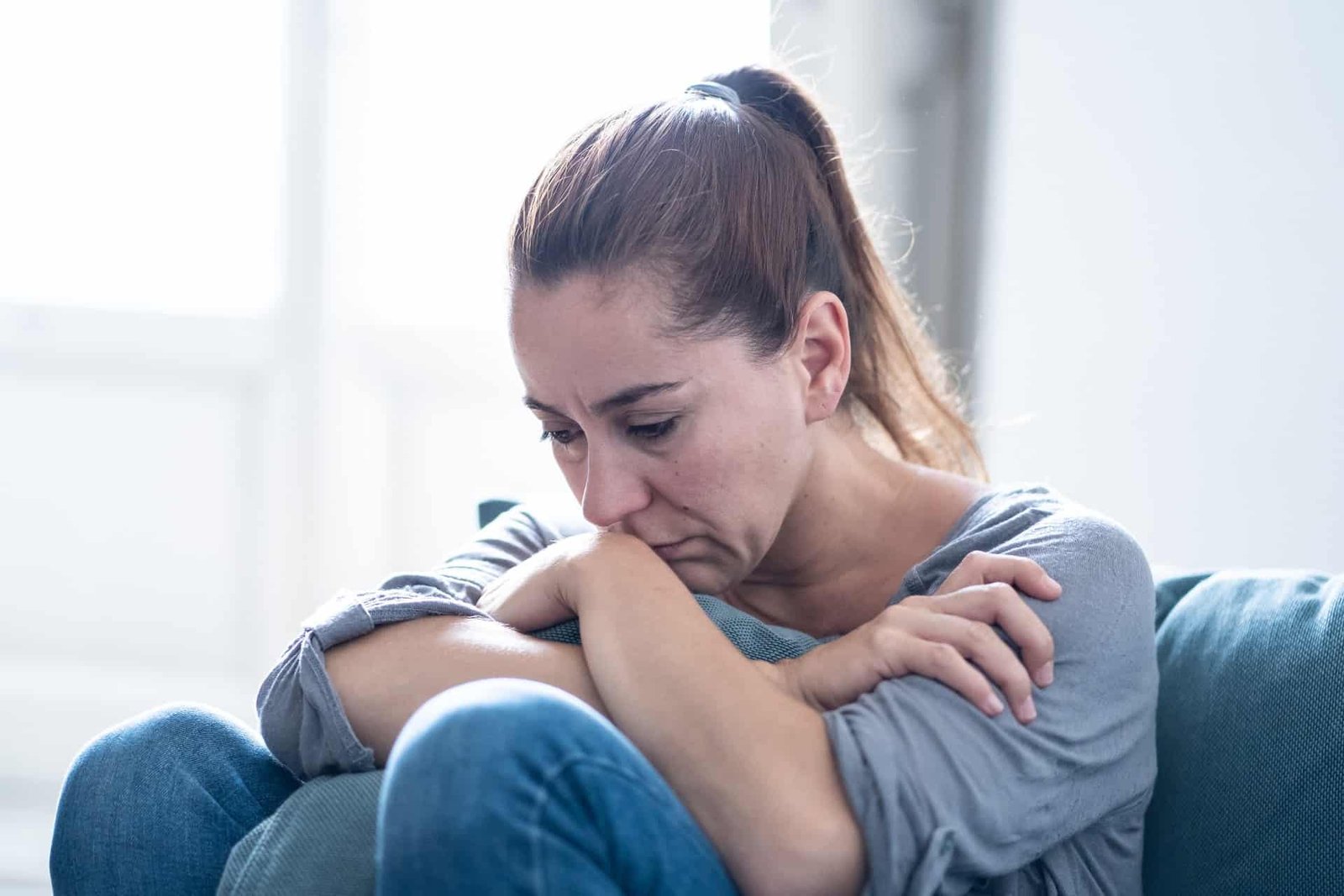When you think you might be pregnant, every little change seems like an early pregnancy symptom. 10 Early Signs And Symptoms Of Pregnancy can be easily to noticed. Whether it’s a sudden dislike for your favorite food or mildly sore breasts, you can’t help but wonder: Could this be it? Here’s all you need to know about early pregnancy symptoms, why they occur, and how to safely manage them.
When Do Early Pregnancy Symptoms Start?
Early pregnancy symptoms can be quite confusing because they often resemble the symptoms many women experience around the time of their menstrual cycle. This includes breast tenderness, cramping, and even spotting. However, the most common early pregnancy symptom is a missed period, as explained by Shari Lawson, M.D., the division director of general obstetrics and gynecology at Johns Hopkins Medicine in Baltimore.

Common Pregnancy Symptoms
Other common early pregnancy symptoms include:
Spotting: Described as vaginal bleeding that occurs around week four of pregnancy or around the time your period would normally arrive. Think of it as lighter than your period, like a few drops of blood in your underwear or blood you only notice when you wipe.
- Light cramping: Starts around weeks four to six
- Breast tenderness: Starts around weeks four to six
- Nausea: Typically begins around weeks four to six.
- Fatigue: Often starts around weeks four to six.
- Frequent urination: Usually starts around weeks four to six.
- Heartburn: Can occur at any point during pregnancy.
- Mood swings: May occur during the first trimester and again near the end of the third trimester
- Some people may only have a few of these symptoms, while others may not have any at all. The severity of these symptoms varies. Though each person is unique, speak with your doctor if you have any worries regarding your symptoms—or lack thereof.
10 Early Signs And Symptoms Of Pregnancy
Spotting During Early Pregnancy
Early pregnancy is not unheard of for spotting. Twenty-seven percent of the 4,500+ women in the research said they had bleeding throughout the first trimester. While extremely mild bleeding lasting one to two days was often not connected with miscarriage, the study did find that bleeding in the early stages of pregnancy can occasionally indicate the loss of a pregnancy.
Why it happens: Spotting can occasionally occur immediately after conception; this is known as “implantation bleeding.” “A small amount of bleeding can occur as the embryo makes its way down the uterus and implants,” states Dr. Lawson.
An additional safe explanation for first-trimester spotting? There is an increased sensitivity in your cervix. So mild bleeding may result during a pelvic exam or sex.
What to do: Even while early pregnancy spotting is common, it’s still advisable to contact your doctor to rule out an ectopic pregnancy, which can be a potentially fatal condition. Usually, if the spotting is benign, you’ll be told to monitor it and give us a call again if it becomes heavier. Spotting typically passes quickly and disappears on its own.
Cramping In Early Pregnancy
Early in their pregnancy, many women have mild to severe cramps.
Why it happens: Dr. Lawson says there are a few hypotheses as to why early pregnancy cramps occur. The first is the tiny amount of bleeding that happens during the implant process.
The uterus’s stretching is the subject of another theory. She claims that because the uterus is a muscle, it contracts during pregnancy. “That will be associated with cramps by some women.”
What to do: Try taking a warm bath, wrapping a hot water bottle in a towel and placing it next to your stomach, or engaging in any kind of relaxation technique if your pregnancy cramps are truly affecting you. Additionally, it’s critical to maintain adequate hydration.
In the event that none of these remedies work, be aware that Tylenol is typically seen as safe to consume while pregnant; nonetheless, you should always consult your doctor before taking any medicine during pregnancy.
Breast Tenderness During Early Pregnancy
In addition to missing periods, Dr. Lawson states that sensitive or uncomfortable breasts are among the most typical early pregnancy symptoms.
Why it happens: Hormones are to blame. According to Dr. Lawson, “higher levels of progesterone and estrogen during the early stages of pregnancy cause breast tenderness.” Additionally, this soreness is an indication that your body is getting ready to nurse since it is beginning to form milk ducts.
What to do: Because breasts tend to grow throughout pregnancy, a supportive bra can be a lifesaver for those who suffer from heavy or aching breasts. Similarly, a sports bra you used for your pre-pregnancy exercises might not provide adequate support for you today. It’s acceptable to sleep in a bra if you experience discomfort at night.
In addition to a quality bra, cold compresses and warm showers are beneficial.
Nausea & Morning Sickness During Early Pregnancy
Since 70% of pregnant women experience what is commonly referred to as “morning sickness” (although, for many, it lasts all day), nausea is probably the most talked-about early pregnancy symptom. Additionally, the Cleveland Clinic reports that 3% of pregnancies result in extreme nausea or vomiting. 10 Early Signs And Symptoms Of Pregnancy contains nausea.
Why it happens: When an at-home pregnancy test indicates that you are pregnant, it is because the hormone known as human chorionic gonadotropin (HCG) has been found in your urine by that tiny strip. During the early stages of pregnancy, HCG levels grow steadily; sadly, elevated HCG levels can cause nausea.
According to Dr. Lawson, “you tend to have more nausea the higher your HCG levels.” We can detect high levels of HCG in a singleton pregnancy, but we also observe larger levels in persons with twins or triplets, which is why some women feel quite unwell with multiples.”
Nausea may also be caused by progesterone. “Smooth muscle relaxation brought on by high progesterone levels delays the passage of food through the stomach and may cause nausea.
What to do: “You might accumulate more gastric acid if your stomach is empty, which can cause nausea,” the expert explains. Additionally, you might try consuming fewer acidic foods and beginning to take natural supplements like ginger. You can add it to yogurt or smoothies, create ginger tea, or purchase ginger candies—which are usually found in health food stores.
Fatigue During Early Pregnancy
Pregnancy-related fatigue varies. Some people feel like they could use a nap, while others are only a bit more fatigued than normal. According to Dr. Lawson, “some women report feeling really run down.”
Why it happens: You can hold the hormone progesterone responsible if you feel worn out in the early stages of pregnancy. It can cause fatigue in many people as it rises significantly throughout the first trimester. In addition, your body is working extremely hard to produce a placenta, a fetus that is beginning to grow, and an increase in blood volume that might cause exhaustion.
What to do: Dr. Gordon advises changing your way of living, eating frequently, and getting regular exercise, even if it’s just a stroll. Try your hardest to obtain adequate sleep at night, and take naps if your schedule permits it.
Frequent Urination During Early Pregnancy
According to Dr. Lawson, the persistent “I need to pee” sensation is also an early pregnancy symptom, even though it’s most commonly associated with the end of pregnancy when the belly presses against the bladder. 10 Early Signs And Symptoms Of Pregnancy contains frequent urination.
Why it happens: You may require more urination if your progesterone and HCG levels are growing together. Furthermore, even though it’s still early for your baby to put pressure on your bladder, the growth and expansion of your uterus may cause you to need the restroom more frequently than usual.
What to do: Steer clear of caffeine-containing beverages (caffeine is a diuretic, meaning it can cause you to urinate more frequently than usual). If having to get up frequently at night is interfering with your sleep, try to cut back on your fluid intake two to three hours before bed.
The majority of these bothersome early pregnancy symptoms will go away by the start of your second trimester, if not before, though every woman is different. Additionally, don’t hesitate to contact your doctor if you have any concerns about the severity of any early pregnancy symptoms.
Heartburn During Pregnancy
Heartburn and indigestion are typical pregnant symptoms. It could feel like burning or hurting in the chest, make you feel bloated and full, burp, throw up food, or make you feel ill or throw up.
Why it happens: The growing baby pressing on the stomach and hormonal changes during pregnancy might cause heartburn. Usually starting around the 27th week of pregnancy, symptoms appear shortly after eating or drinking.
Treatment of Acid Reflux During Pregnancy- Readmore
What to do: Simple lifestyle modifications, such as eating smaller meals more frequently, avoiding eating within three hours of going to bed, maintaining a nutritious diet, and avoiding caffeine, rich, spicy, and fatty foods, can help prevent or lessen heartburn during pregnancy. You should discuss taking antacids with your doctor if your symptoms don’t go away.
Early Pregnancy Mood Swings
Why it happens: Hormonal changes cause mood swings throughout the first several weeks of pregnancy. If you suffer PMS symptoms during your periods, you are more likely to have noticeable mood fluctuations during your pregnancy. The late third trimester is also when early pregnancy mood swings might resurface.
What to do: While mood swings are normal during pregnancy, you should see your doctor if you experience symptoms such as difficulty sleeping, changes in eating patterns, or mood swings that continue longer than two weeks. And don’t be embarrassed to ask your loved ones or a partner for assistance.
Raised Body Temperature During Pregnancy
Why it happens: Hot flashes, which are rapid, intense feelings of warmth in the upper body, most commonly the face, neck, or chest, can also occur in pregnant women. Although the exact cause of hot flashes is unknown, hormonal fluctuations are considered to be the culprit. A common symptom of pregnancy is feeling generally warmer, which is brought on by hormones and an increase in blood flow to the skin.
What to do: Take a pregnancy test if you suspect you could be pregnant and your temperature has increased. Get in touch with your healthcare professional if you have any concerns regarding your body temperature.
High Blood Pressure During Pregnancy
Why it happens: Chronic hypertension is the term used to describe high blood pressure in pregnant women who have it either before or before 20 weeks of pregnancy. Preeclampsia during the second or third trimester of pregnancy is also a possibility for those with persistent hypertension.
Preeclampsia is a condition in which a pregnant woman whose blood pressure was previously normal experiences symptoms such as high blood pressure and protein in their urine.
Those who are carrying multiples, are older than 40, are Black, were overweight prior to becoming pregnant, or had high blood pressure prior to becoming pregnant are among the groups that are particularly at risk of having higher blood pressure during pregnancy. It is also common for first-time mothers and those whose mother or sister had high blood pressure during pregnancy.
What to do: It’s crucial for a pregnant person to discuss any high blood pressure they had prior to getting pregnant with their healthcare practitioner in order to receive the right care and manage their blood pressure during the pregnancy. Placental abruption, stroke, and preeclampsia are among the issues that might occur to a mother whose blood pressure is out of control. Preterm birth and low birth weight are the baby’s hazards.
Although each individual is unique, the majority of these bothersome early pregnancy symptoms should go away by the start of your second trimester, if not before. Additionally, don’t hesitate to contact your doctor if you have any concerns about the severity of any early pregnancy symptoms.
